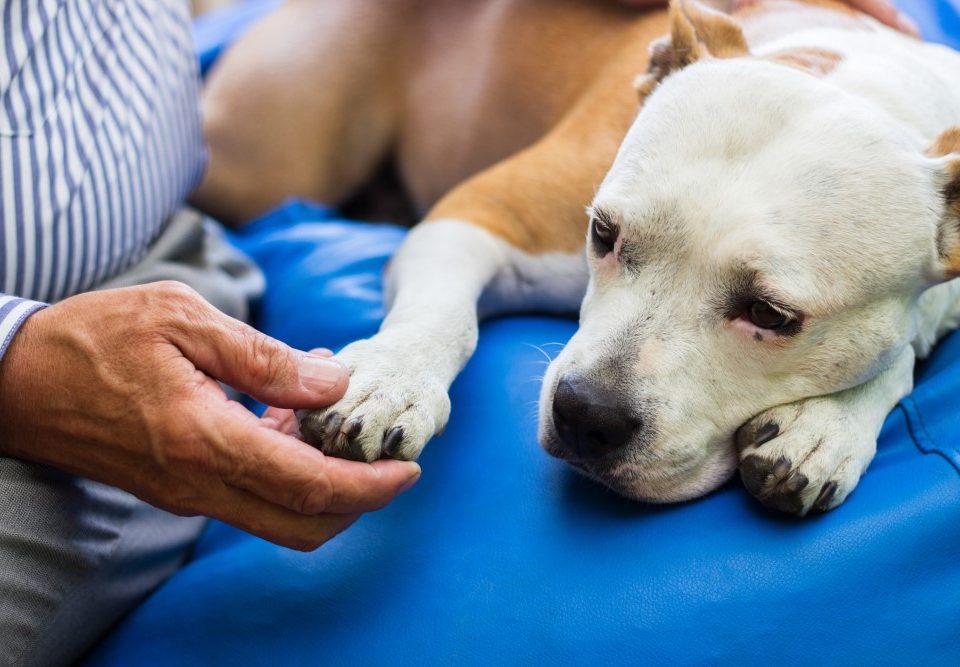
Everything a Dog Owner Must Know About Putting a Dog Down
June 12, 2018
10 Common Rabbit Diseases And Illnesses Every Owner Should Know About
July 25, 2018My Dog Has Cancer. When Do I Put Him Down? It’s news that no dog lover ever wants to hear. But when your beloved pet receives a terminal diagnosis, you will have a lot of questions. About what you should do and what to expect. In short, if your dog has cancer, when do you put them down?
Get more information
Everyone hopes that their dog will pass on in old age, peacefully and without suffering. But a cancer diagnosis can mean quite the opposite. You will need to be prepared to understand what is happening and – potentially – to start thinking about making a choice which will save them from further pain.
Where is the cancer?
Cancer covers a lot of ground. It can affect different areas of your dog’s body and cause different problems depending on where it is. Your vet will tell you:
– Where it is and what kind it is
– Whether or not it is spreading
– If there are any treatment options
Getting information such as this will usually be your first step in ensuring you are prepared to manage your dog’s condition in the way which is best for them.
Each type of cancer may result in effects which range from the unpleasant to the dangerous. Dogs with tumors in the brain or head may lose their vision or even forget who you are. This can lead to a great deal of distress. For dogs suffering from cancer which affects the heart and lungs, breathing problems are a common event. These can lead to a fluid buildup which makes your dog feel as if they are constantly drowning. In such a case, you need to act.
Getting your vet’s advice and knowledge of your pet’s specific condition and how it may progress should always be your first port of call. Then, of course, the decision comes down to you.
How will you decide what is best for your dog?
My dog has cancer – when do I put them down?
The decision you are facing is a deeply personal one. But in the absence of being able to talk it through with the person who is suffering, many people who deal with dogs professionally suggest thinking about the situation in one of the following ways:
1) When their pain in life exceeds the pleasure
This is, perhaps, the one true measure you should bear in mind.
No one knows your dog better than you. If they are truly suffering – you can tell. If your dog has lost interest in all the things they used to love: getting stuck into their food, barking at anyone even hinting at walking nearby or at passing cars, going for walks and running around after sticks or balls or whatever they like you to throw for them… are they really enjoying their life anymore?
If their every waking minute is lived in pain instead of doing all the things which make being a dog worthwhile – and there is nothing that your vet can do – perhaps it is time to start thinking about alternatives.
2) When your bond is the only thing tying them to this world
“Dogs are wonderful natural creatures and they live naturally shorter lives.”
Most dog lovers who hear words like this instantly start thinking the speaker is cruel or doesn’t care for their dog as deeply as the listener cares for theirs. But it’s important to remember that death is a natural part of life. And for dogs, who naturally live for around eight years – compared to the ten times that which humans can manage – death will naturally come a lot sooner.
One of the biggest questions you need to ask yourself when it comes to putting a dog down is this:
Are you prolonging their life for their sake… or for yours?
The deep emotional bond – for some people this bond can be approaching that or even equal to the bonds they have with the human members of their family – is not one that you ever want to have to break.
But is it your dog’s wellbeing which you, as their caregiver, are concerned about? Or, deep down, might it have to do with your own fear of losing them?
You may need to search down deeply to find the answer. But for any dog owner, their pet’s happiness, comfort, safety, and pleasure will be their main concerns. Forcing them to experience a life of constant suffering only to hold back the pain you know you will feel at their passing is not something you want to have to have on your conscience.
With this in mind, there are several common signs of suffering in dogs…
What are the signs of suffering in dogs?
Dogs can be hardy creatures. For milder conditions, this can make it difficult to tell when they are in pain. Sadly, when it comes to cancer, changes in their condition can be rapid and extreme.
You should keep a close eye on your dog to see if they are experiencing:
– A tendency to constantly cry or whimper
– An unwillingness or inability to move – especially if this means they cannot bring themselves to visit a litter tray or go to the garden to relieve themselves
– No appetite or desire for food at all
– Rapid weight loss
– Inability to sleep
– Vomiting
– Breathing and respiratory problems
Symptoms such as these might be short-lived and manageable with the right medication. But they can also be extremely painful for your dog, especially when extended over a period of several days.
If you notice any of the above, it is definitely time to consult your vet again – but do avoid forcing your dog to move if possible. It may also be time to consider making that impossible decision and putting your dog to sleep. To do otherwise can be crueler rather than kind.
Pet loss and grief
People who tell you that they were “just a dog” may never understand. But whether your dog passes on naturally or because you have helped them to overcome their pain, the feeling of loss which comes afterward can be terrible. Many people swear that they will never have another pet after losing their first.
But dogs are amazing animals, with love and joy to give in abundance. Whether you ever choose to welcome a new dog into your life or not, you will always have the joyful memories you made together to hold on to.





